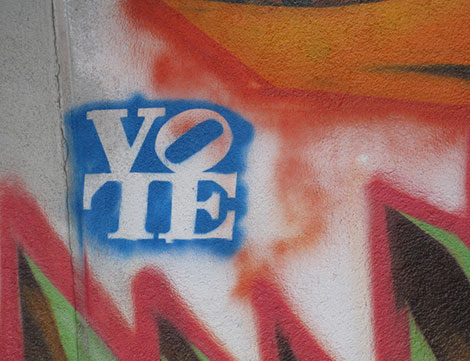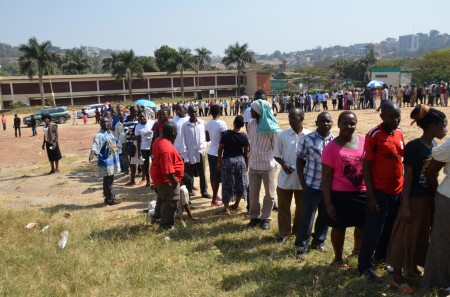
This article was originally published by the Carnegie Moscow Center on 20 August 2019.

This article was originally published by the Carnegie Moscow Center on 20 August 2019.

This article was originally published by the European Council on Foreign Relations (ECFR) on 26 July 2017.
Here we compare the parties’ positions on the four core EU policy domains: common security and defence, migration, financial, and trade policy.
How does Europe feature in the German elections? How do Chancellor Angela Merkel’s Christian Democrats (CDU), Martin Schulz’ social democrats (SPD), the Greens (Bündnis90/Die Grünen), the business-friendly free democrats (FDP), the left party (Die Linke), and the right-wing Alternative for Germany (AfD) aim to reshape four core EU policy domains: common security and defence, migration, financial and trade policy? A comparison of their election manifestos provides some first answers to these questions.
Nearly all established parties running for the coming Bundestagswahl on 24 September have adopted a narrative that combines a pro-European outlook with an emphasis on the need for European reforms. Only the Eurosceptic AfD bucks the trend with its calls for a ‘Dexit’ referendum.

An earlier version of this piece was published by Gulf State Analytics in December 2016.
The results of Kuwait’s recent parliamentary elections, held on November 26, have significant implications for the Arab Gulf country’s citizens. Although the Kuwaiti government asserts that the surprise dissolution in October of the National Assembly was due to “circumstances in the region” and security challenges, the move was actually part of the government’s strategy, albeit ill-fated, to create a more favorable balance in the new parliament between opposition and government.
The government is justifiably concerned with the country’s political environment. The years between 2006 and 2013 were fraught with tension related to parliamentary dysfunction. Street protests in response to the paralysis of the country’s political and economic institutions were frequent.

This article was originally published by the Council on Foreign Relations (CFR) on 9 December 2016.
Millions of people around the world went to the polls this year. The results provided plenty of surprises. British voters defied the pollsters and voted to leave the European Union. Colombians did much the same in rejecting their government’s peace deal with FARC, though Colombia’s president found a way to complete the deal a few months later without a vote. The biggest electoral surprise of all might have been in the United States, where Donald Trump defied the political experts and defeated Hillary Clinton. Perhaps 2017 will produce similarly surprising results. Here are ten elections to watch.

This article was originally published by the IPI Global Observatory on 24 February 2016.
Last week saw the most competitive elections in the history of Uganda. Several prominent ministers and key members of the ruling party were voted out—approximately 19 ministers lost elections, including Crispus Kiyonga, who is playing a key role in the Burundi Peace process.
The Electoral Commission declared incumbent Yoweri Museveni as the winner of the presidential election, with 60.7% (5,617,593 votes). Kizza Besigye came second with 35.37% (3,270,290 votes) and Amama Mbabazi third with 1.43% (132,573 votes) in a race that had eight candidates. President Museveni, who assumed office in 1986, is now one of Africa’s longest serving presidents, along with Angola’s Jose Eduardo Dos Santos (since 1979), Equatorial Guinea’s Teodoro Obiang (since 1979), Zimbabwe’s Robert Mugabe (since 1980) and Cameroon’s Paul Biya (since 1982). The 71-year-old has run the country for the last thirty years.
The shutdown of social media was widely reported in the international press and put a dark cloud over the elections, during which Kampala was heavily patrolled by military and police. “Calm,” “silence,” and uncertainty hung over Kampala and the country amid the announcement of President Museveni’s victory. There have been no victory jubilations for the last two days. The Kenyan and Russian presidents were the first to congratulate Uganda, and now Kizza Besigye remains under house arrest.